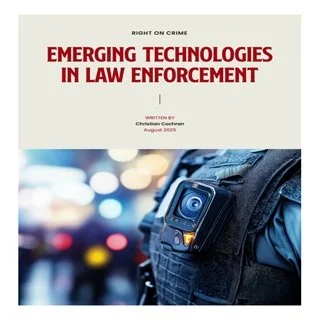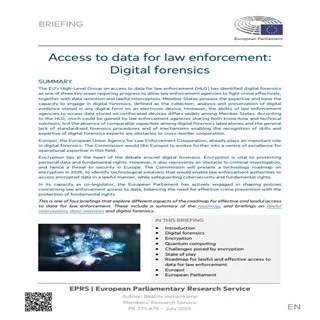By Christian Cochran
Emerging technologies, especially artificial intelligence (AI), are rapidly transforming law enforcement operations. These advancements offer numerous benefits, such as enhanced efficiency, improved public safety, and cost-saving measures for agencies. AI technologies, like predictive policing and facial recognition, hold promises for reducing crime rates and improving investigative efficiency. Yet, significant ethical dilemmas and privacy issues arise from their use, in turn necessitating careful policymaking and oversight. Various case studies illustrate both positive and negative outcomes of AI applications in law enforcement, emphasizing the need for transparency and community involvement. To manage the use of these emerging technologies effectively, state legislatures should explore policy changes and regulatory frameworks. Recommendations include promoting transparency, ensuring oversight, and establishing acceptable use standards. Involving community stakeholders in discussions about AI deployment is also advocated to build trust and accountability between law enforcement and the public. Challenges posed by AI technologies include balancing innovation with presumed privacy. Important United States Supreme Court cases shape the legal landscape regarding privacy expectations and technology use by law enforcement. Additionally, concerns about how the increasing volume of data collected by AI systems is used and protected lead to calls for stricter data privacy laws. While AI offers significant opportunities for improving law enforcement practices, it is crucial to address the accompanying ethical, legal, and privacy challenges. A balanced approach that promotes innovation while safeguarding citizens’ rights and fostering public trust in law enforcement practices is essential to ensuring the right-sized proper implementation of the technology.
Austin, TX Texas Public Policy Foundation and Right on Crime, Right on Crime, 2025. 28p.



